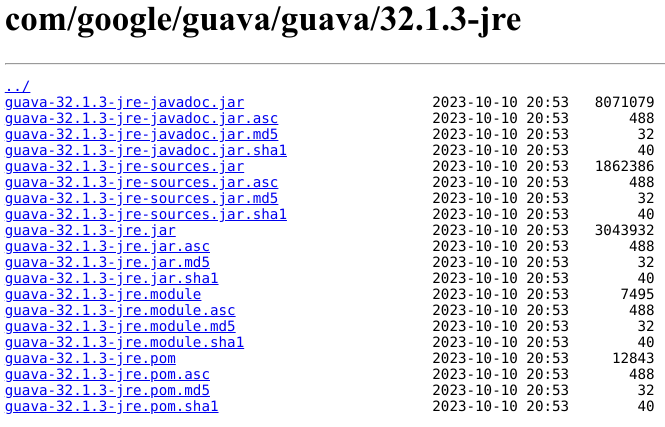AndroidX project uses Gradle signature verification which is one of many security practices you should follow for your project as well.
When upgrading to com.google.guava:guava version 32.1.3 we spotted an odd signature verification behavior - we saw
that Gradle was not validating signatures for some Guava jar files, it was just validating checksums.

Generally, this happens when artifacts are missing their signature files (.asc), but this did not seem to be the case
for Guava.

You, an eagle-eyed reader, might have already spotted something funky - we are using module
com.google.guava:guava:32.1.3-jre, but we are getting verification issues with guava-32.1.3-android.jar
which should only be used when com.google.guava:guava:32.1.3-android is requested.
Note: Guava ships two “flavors” of their library: JRE and Android with various subtle differences
We went back to see what’s changed from Guava 32.0.1 and we noticed that now Guava ships with Gradle module metadata
(.module files) that Gradle now uses to resolve dependencies instead of POMs. Modules files allow for variant aware
resolution which is
exactly what Guava started using. The relevant bit of .module file is the following:
{
"name": "androidRuntimeElements",
"attributes": {
"org.gradle.category": "library",
"org.gradle.dependency.bundling": "external",
"org.gradle.jvm.version": "8",
"org.gradle.jvm.environment": "android",
"org.gradle.libraryelements": "jar",
"org.gradle.usage": "java-runtime"
},
...
"files": [
{
"name": "guava-32.1.3-android.jar",
"url": "../32.1.3-android/guava-32.1.3-android.jar"
}
],
}
What this means, is that if you add a dependency on com.google.guava:guava:32.1.3-jre (directly or transitively) from
an Android project, it will actually resolve to guava-32.1.3-android.jar as Android Gradle Plugin will add
"org.gradle.jvm.environment": "android" attribute during resolution. This means instead of getting the -jre.jar
in your APK which is likely not compatible with Android you just get the right jar. There is a reverse set up in
com.google.guava:guava:32.1.3-android to get the -jre.jar for Java consumers. This all sounds awesome!
Wait, why are we getting no signature verification?! Turns out that "files" trickery with relative url makes Gradle
resolve the right jar file, but when it tries to verify this, it looks for
com/google/guava/guava/32.1.3-jre/guava-32.1.3-android.jar.asc that does not exist! Luckily, Gradle provides
available-at to handle this type of redirect and now there is a Github issue
for Guava to migrate to that instead so that future versions not only get the right jar variant, but can also verify
these jars are signed as expected. Phew 😅